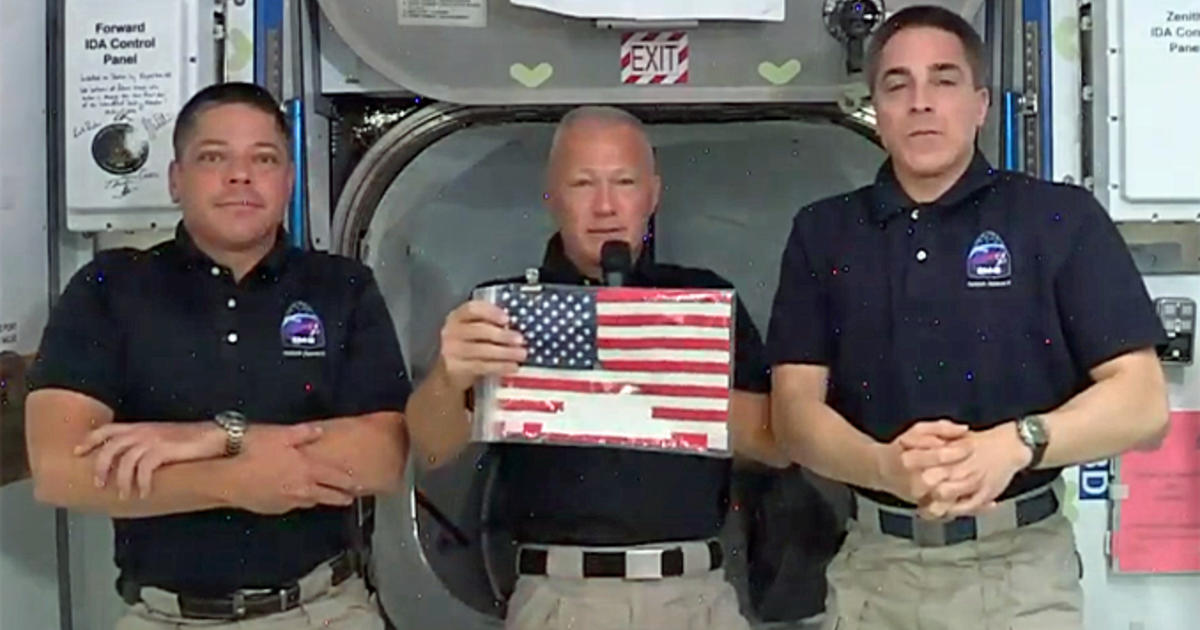
The SpaceX Falcon 9 rocket that boosted astronauts Douglas Hurley and Robert Behnken into space provided a slightly rougher ride than expected during the later stages of the climb to orbit, but both said Monday they enjoyed their historic trip and marveled at a sooth-as-silk docking with the space station.
"It absolutely did," said station commander Chris Cassidy, the lone American aboard the station until Hurley and Behnken arrived Sunday.
Hurley and Behnken blasted off from pad 39A at the Kennedy Space Center Saturday afternoon, strapped into a Crew Dragon capsule atop a Falcon 9 rocket.
Both Hurley and Behnken are space shuttle veterans, familiar with the initially rough ride when the orbiter's powerful solid-propellant boosters were firing and the transition to a much smoother experience after the boosters were jettisoned and only the ship's liquid fueled main engines were running.
"So the first stage engines shut off, and then it took some time between the booster separating and then the Merlin vacuum engine starting," Hurley said.
"It got a little rougher with the Merlin vacuum engine, and it'll be interesting to talk to the SpaceX folks to find out why it was a little bit rougher ride on second stage than it was for shuttle on those three main engines.".
The Crew Dragon is designed to rendezvous and dock with the space station autonomously, without any direct input from the crew.
There were no problems and when the Crew Dragon docked with the station Sunday morning, Hurley and Behnken were unable to detect the impact.
They were selected for the first piloted Crew Dragon flight in part so they could bring those skills to evaluating the spacecraft before it begins operational missions to the space station in the late-summer timeframe.
While he did not provide any details, Hurley said it is "very similar to the one we were used to in the space shuttle, and it worked very well.
The Crew Dragon is certified for up to four months in space, but the crew could be ordered home earlier depending on how the space environment affects the capsule's solar arrays, the weather in the Atlantic Ocean splashdown zone and other factors.
Based at the Kennedy Space Center in Florida, Harwood is a devoted amateur astronomer and co-author of "Comm Check: The Final Flight of Shuttle Columbia."
